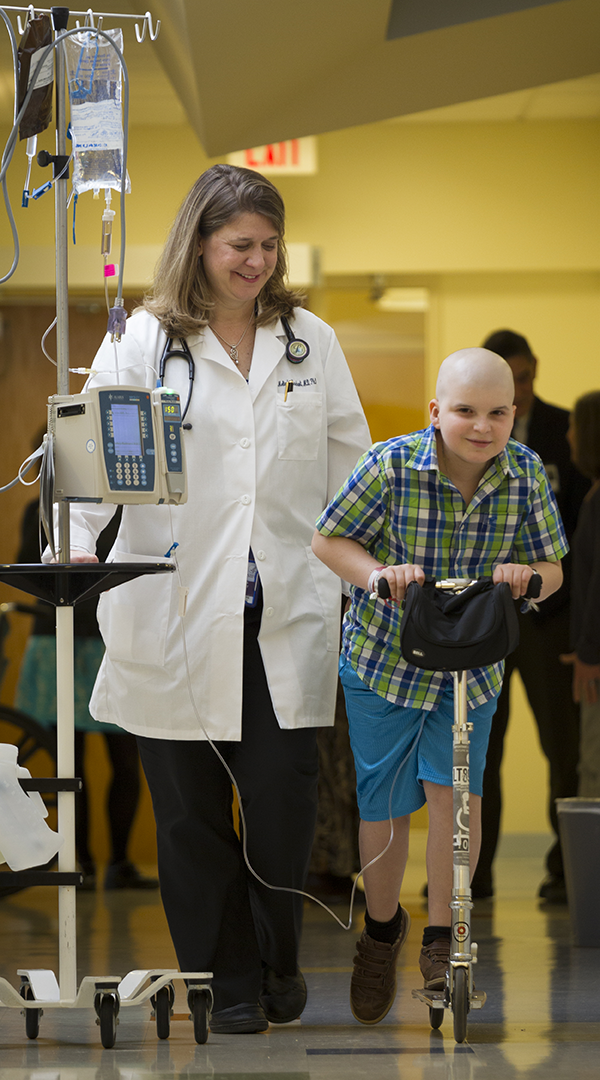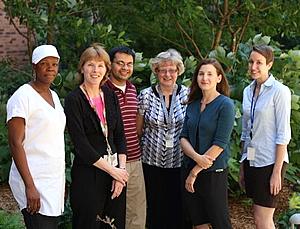Overall survival for children with tumors of the central nervous system (CNS) has gradually improved, and 5-year survival now approaches 70%. However, for some tumors, such as diffuse intrinsic pontine gliomas and high-grade gliomas, 5-year survival is less than 10% and little progress in improving this outcome has been made in the past 2-3 decades. The prognosis for children with recurrent tumors is also poor, and few treatment options are available. In addition, we face the challenge of treating patients whose brains are still developing. Although great strides have been made in initiating biological studies of these diseases, we have come to realize that pediatric CNS tumors differ significantly from those found in adults, affirming the need for additional in-depth studies specifically in pediatric patients.
Our patients are extensively evaluated and treated at the National Institutes of Health (NIH) Clinical Center, located on the NIH campus in Bethesda, Maryland, generally in concert with the home (referring) physician. We work closely with physicians in radiation oncology (NCI) and neurosurgery (NINDS), who are also located on the NIH campus.
General Information
Tumors of the central nervous system (CNS), including tumors of the brain and spinal cord, are the most common solid tumors in children. These tumors are heterogeneous, meaning there are a number of different types of tumors and different biologic behavior. Pediatric CNS tumors differ from adult CNS tumors in histology, biology, pathophysiology, and location. Many childhood CNS tumors can be removed surgically. However, some tumors are located in critical areas, are malignant, have invaded surrounding areas or have spread to other parts of the CNS, and additional therapy is needed.
The armamentarium for the treatment of pediatric CNS tumors includes surgery, radiation and chemotherapy. For some tumors, such as diffuse intrinsic pontine gliomas and high-grade gliomas, current treatment strategies are insufficient and the tumor frequently comes back or begins to grow again. For other tumor types, such as medulloblastoma and ependymoma, initial treatment may be adequate for some, but if the tumor recurs, it is difficult to cure.
Our clinical program in neuro-oncology focuses on developing new anticancer agents for treating childhood CNS tumors. Our clinical studies involve performance of early clinical trials with pharmacokinetic modeling, as children may tolerate chemotherapeutic agents differently than adult patients. The major goals of the program are:
- rational, pharmacokinetic-based, drug development in the pediatric population, and
- investigation of novel therapeutic approaches through alternate delivery strategies, including convection-enhanced delivery.
Our Mission
- Identify and develop new agents/approaches for treating children with CNS tumors
- Improve overall survival and quality of life
- Focus on ways to overcome obstacles to effective treatment
Contact Us
To refer a patient, physicians can contact Pediatric Oncology by calling locally (240) 760-6560, or the toll-free number, 1-877-624-4878 (8:30 AM to 5:00 PM, Monday-Friday). Parents can also call this number if they are interested in determining if their child is eligible for particular protocol.
">

